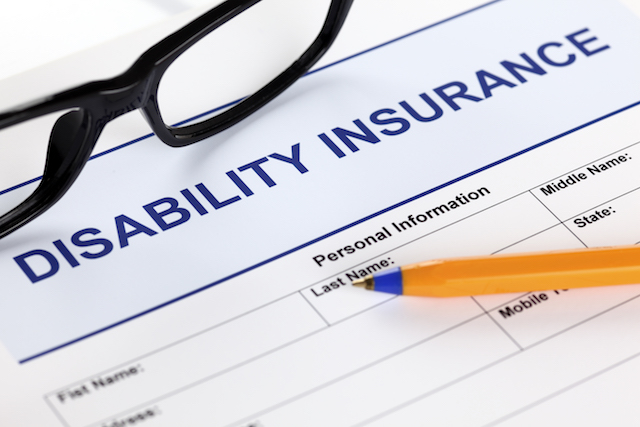Can You Qualify for Disability Benefits with Sleep Apnea?
According to the American Academy of Dental Sleep Medicine, obstructive sleep apnea (OSA) affects approximately 25 million adults across the United States. Sleep apnea is a serious and disabling medical condition which can be fatal in rare cases. If you are unable to work because you suffer from severe sleep apnea, you may be able to qualify for monthly disability benefits through Social Security Administration programs like SSI (Supplemental Security Income) and SSDI (Social Security Disability Insurance). In this article, our disability attorneys will explain how SSA doctors evaluate claimants who suffer from sleep apnea. If your claim is denied, our attorneys can help you appeal the initial decision.
SSA Eligibility Requirements for SSI and SSDI
There are really two sets of requirements for disability claimants: generic requirements which apply to everyone, and medical requirements which are different for every condition. Before we look at the medical standards associated with sleep apnea, let’s cover the basic criteria which apply to all applicants.
First, you must be disabled. This may sound redundant or obvious, but it’s actually the toughest criteria to satisfy, as most disability claim denials result from SSA doctors determining that the claimant wasn’t severely disabled. It’s always frustrating to be told your condition isn’t as severe as you and your physician know it to be, but don’t give up: if the SSA denies your application, you can challenge the decision by appealing.
Next, your disability must be long term. That means your sleep apnea must have lasted for 12 months, must be expected to last for 12 months, or must be expected to result in death.
Finally, your monthly earnings must not be too high. If your monthly earnings surpass the SSA’s income thresholds, the SSA will determine that you are engaging in “substantial gainful activity” (SGA), and are therefore not disabled. The exact limits differ depending on whether you are married, single, blind, applying for SSI, or applying for SSDI.
If you meet the general criteria listed above, next it’s time to check whether you meet the medical criteria specific to sleep apnea claimants.

How Obstructive Sleep Apnea (OSA) Qualifies for Disability Benefits
When examining disability claimants, the SSA uses a guide called the Listing of Impairments, also known as the “Blue Book.” The Listing of Impairments, or Blue Book, catalogs medical standards for various conditions. If a claimant matches the standards for his or her condition, the claimant is likely to be considered disabled.
Even if a claimant doesn’t match the standards under the relevant listing, he or she can still be eligible in other ways. However, it’s still a good idea to know what sorts of symptoms and medical problems SSA examiners look for in sleep apnea claimants.
With that in mind, let’s look at what the Listing of Impairments has to say about OSA. For the purposes of this article, we will look at the adult Listing, which is separate from the childhood Listing.
The Blue Book is divided by body system. Information about sleep apnea is located under Section 3.00, which deals with respiratory disorders. The specific listing for OSA is located under Section 3.10, which addresses sleep-related breathing disorders. However, Section 3.10 instructs examiners to “evaluate under 3.09 (chronic cor pulmonale), or 12.02 (organic mental disorders),” so let’s head over to those listings.
As stated under Section 3.09, examiners are looking for “clinical evidence of cor pulmonale,” which means “documentation by signs and laboratory findings of right ventricular overload or failure.” Acceptable sources and examples of documentation include:
- An ECG/EKG (electrocardiogram) showing right ventricular hypertrophy.
- Peripheral edema (swelling caused by fluid build-up in the feet and legs).
- Distension of veins in the neck.
- Increased pressure in the pulmonary artery. This is measured by right heart catheterization, which involves inserting a small tube, called a catheter, into the right side of the heart.
- The SSA warns that “cardiac catheterization will not be purchased,” so claimants should expect to cover this cost on their own.
In addition, the claimant must also meet certain standards for arterial pressure or arterial hypoxemia (low blood oxygen).
Section 12.02 defines an organic mental disorders, or OMDs, as “psychological or behavioral abnormalities associated with a dysfunction of the brain.” Under Section 12.02, claimants must be able to meet certain combinations of multiple criteria, which include (but are not limited to) the following:
- Changes to mood, personality, and/or emotions.
- Difficulties with concentration, focus, and/or general social functioning.
- Loss of memory.
- “Disorientation to time and place.”
Pennsylvania Disability Attorneys Offering Free Consultations
If you’re one of the millions of Americans suffering from sleep apnea, you may be a good candidate for disability benefits. To set up a free and confidential legal consultation, call the disability lawyers of Young, Marr, Mallis & Associates at (609) 755-3115 in New Jersey or (215) 701-6519 in Pennsylvania. We have more than 20 years of experience handling thousands of claims on behalf of Pennsylvania and New Jersey residents.






























